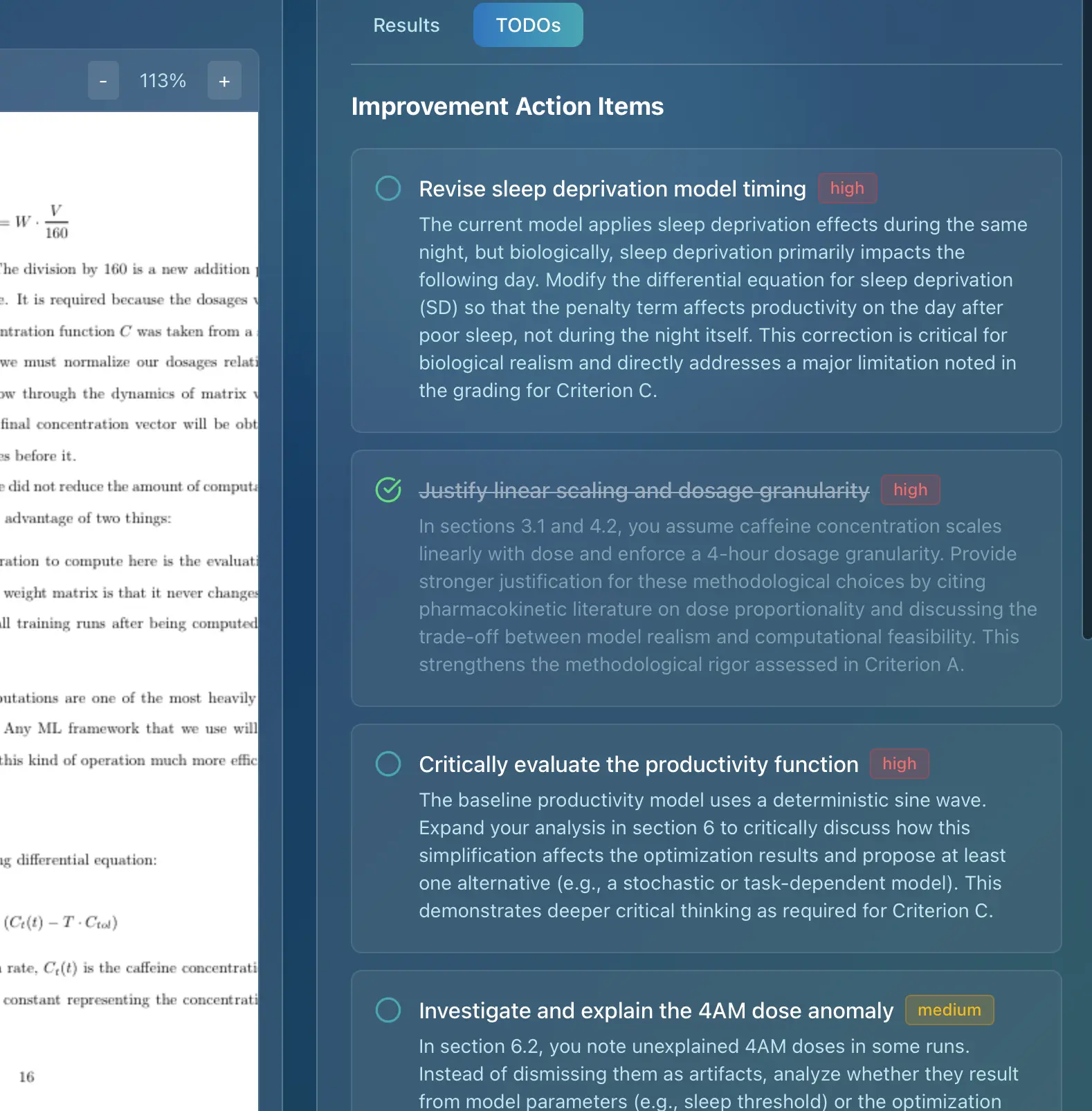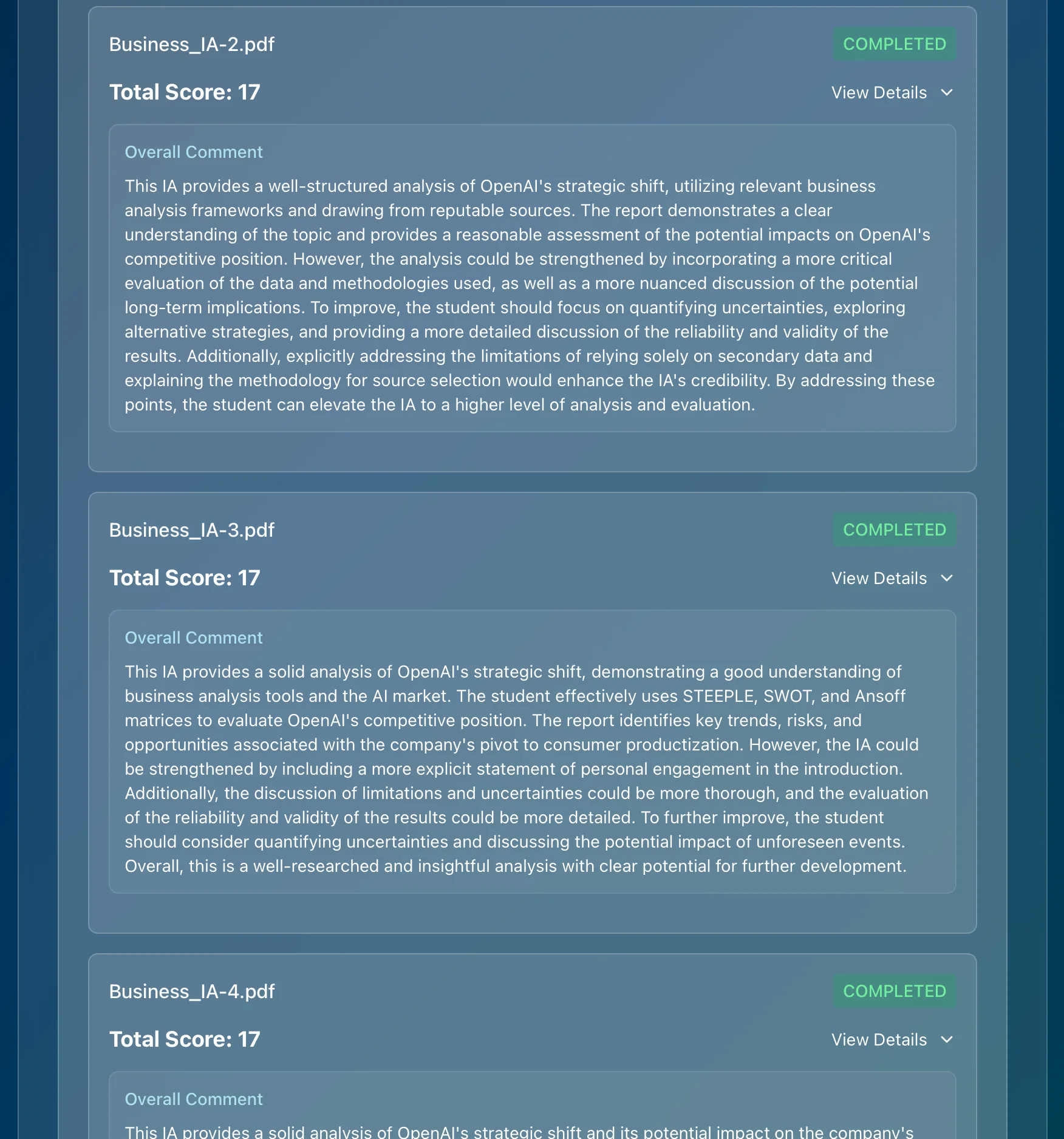A Student's Guide to the IB Philosophy IA
The IB Philosophy Internal Assessment (IA) can seem daunting, but with the right approach, it's a fantastic opportunity to delve into a philosophical issue that genuinely interests you. This guide will provide you with a comprehensive overview of the IA, covering everything from choosing a suitable topic to crafting a well-structured and insightful analysis. We'll break down the assessment criteria, offer practical tips, and highlight common pitfalls to avoid, ensuring you're well-equipped to achieve a top score in your IB Philosophy IA.
What is the IB Philosophy IA?
The IB Philosophy IA is a 2000-word philosophical analysis of a non-philosophical stimulus. It's worth 20% of your final IB Philosophy grade (both SL and HL). Unlike external exams, the IA allows you to explore a philosophical issue in depth, demonstrating your understanding of philosophical concepts and your ability to apply them to real-world scenarios. Think of it as a chance to showcase your critical thinking and analytical skills.
Struggling with IB Assessments?
Get instant, detailed feedback on your work with AI that understands IB criteria.

Choosing the Right Topic for Your Philosophy IA
Selecting a compelling and manageable topic is crucial for a successful IA. The stimulus must be non-philosophical, meaning it shouldn't be a direct philosophical text or theory. Here's how to approach topic selection:
- Identify a Stimulus: This could be anything from a news article, a film, a piece of art, a personal experience, or even an advertisement. The key is that it presents a situation or idea that raises a philosophical question.
- Brainstorm Philosophical Issues: Once you have your stimulus, ask yourself: What philosophical questions does this raise? Consider issues related to ethics, epistemology, metaphysics, political philosophy, or aesthetics.
- Assess Feasibility: Can you develop a 2000-word analysis of this topic? Is there enough philosophical literature to support your arguments? Is the topic too broad or too narrow?
- Personal Interest: Choose a topic that genuinely interests you. You'll be spending a significant amount of time researching and writing about it, so passion will make the process much more enjoyable and rewarding.
Example:
- Stimulus: A news article about a self-driving car causing an accident.
- Philosophical Issue: The ethical responsibility of AI and the question of moral agency.
Structuring Your IB Philosophy IA
A well-structured IA is essential for clarity and coherence. Here's a suggested structure:
- Introduction (approx. 200 words):
- Clearly identify the stimulus and the philosophical issue you will be exploring. (Criterion A: Identification of issue and justification)
- Provide a brief justification of the connection between the stimulus and the issue. Why is this stimulus relevant to this philosophical question?
- State your thesis statement – your main argument or position on the issue.
- Outline the structure of your essay.
- Background and Context (approx. 300 words):
- Provide relevant background information on the stimulus.
- Define key philosophical concepts and terms that will be used throughout the essay. (Criterion C: Knowledge and understanding)
- Analysis (approx. 800 words):
- Present your main arguments, supported by philosophical theories and examples. (Criterion D: Analysis)
- Analyze different perspectives on the issue.
- Consider counterarguments and address them effectively.
- Use clear and concise language.
- Evaluation (approx. 500 words):
- Evaluate the strengths and weaknesses of different perspectives. (Criterion E: Evaluation)
- Justify your own position on the issue.
- Consider the implications of your conclusions.
- Conclusion (approx. 200 words):
- Summarize your main arguments and findings.
- Restate your thesis statement in light of your analysis.
- Offer a final reflection on the philosophical issue.
Understanding the IB Philosophy IA Assessment Criteria
The IB Philosophy IA is assessed based on five criteria:
- Criterion A: Identification of Issue and Justification (0-3 marks): This assesses your ability to clearly identify a philosophical issue arising from the stimulus and justify its relevance. To get a top score (3 marks), ensure the issue is explicitly stated and the connection to the stimulus is well-articulated.
- Criterion B: Clarity (0-4 marks): This assesses the organization, structure, and coherence of your response. Aim for a very well-structured, focused, and coherent essay with clear and easy-to-follow arguments to achieve the highest mark (4 marks).
- Criterion C: Knowledge and Understanding (0-4 marks): This assesses your use of accurate and relevant philosophical knowledge (concepts, ideas, vocabulary). Demonstrate in-depth knowledge, provide a well-developed explanation of the issue, and consistently use appropriate philosophical vocabulary to score highly (4 marks).
- Criterion D: Analysis (0-8 marks): This assesses the depth of your critical philosophical analysis, including the use of examples and consideration of counterarguments. Strive for a well-developed critical analysis with well-chosen examples and convincing addressing of counterarguments to maximize your score (7-8 marks).
- Criterion E: Evaluation (0-6 marks): This assesses the quality of your evaluation of different perspectives and the coherence of your conclusions. Aim for a thorough evaluation of alternative interpretations, justification of all points, and a clear, consistent conclusion drawn from the argument to achieve top marks (5-6 marks).
Pro Tip: Get AI-Powered Grading
Stop second-guessing your grades. Get instant feedback aligned with official IB rubrics.

Common Challenges and Mistakes to Avoid
- Choosing a Stimulus That is Too Philosophical: Remember, the stimulus should be non-philosophical. Avoid using philosophical texts or theories as your starting point.
- Descriptive Rather Than Analytical: The IA requires critical analysis, not just description. Don't simply summarize the stimulus or philosophical theories; analyze them in relation to the issue.
- Lack of Justification: Ensure you clearly justify the connection between the stimulus and the philosophical issue. Explain why this stimulus is relevant to this particular philosophical question.
- Ignoring Counterarguments: Failing to address counterarguments weakens your analysis. Acknowledge and respond to opposing viewpoints to strengthen your own argument.
- Poor Structure and Clarity: A disorganized and unclear essay will be difficult to understand and evaluate. Follow a clear structure and use concise language.
Advanced Tips and Strategies for a Top Score
- Engage with Primary Sources: Go beyond textbooks and secondary sources. Read original philosophical texts to gain a deeper understanding of the concepts and theories.
- Develop a Strong Thesis Statement: Your thesis statement should be clear, concise, and arguable. It should guide your entire essay.
- Use Examples Effectively: Examples should be relevant, specific, and well-explained. They should support your arguments and illustrate your understanding of the philosophical issue.
- Seek Feedback: Ask your teacher, peers, or other experts to review your IA and provide feedback. Use their feedback to improve your essay.
- Proofread Carefully: Errors in grammar, spelling, and punctuation can detract from the quality of your essay. Proofread your work carefully before submitting it.
Technology and Modern Assessment: The Role of AI
Technology is transforming education, and assessment is no exception. AI-powered tools are becoming increasingly valuable for both students and teachers in the IB program.
For students, AI can provide personalized feedback on their work, helping them identify areas for improvement. For teachers, AI can automate the grading process, saving them time and ensuring consistency.
Marksy is a leading AI grading assistant specifically designed for the International Baccalaureate. It provides instant, accurate, and detailed feedback on student work based on official IB rubrics. Marksy uses sophisticated algorithms to analyze student essays and provide criterion-by-criterion feedback, helping students understand exactly how to improve their work.
AI tools like Marksy use official IB criteria to ensure accuracy and fairness in assessment. They can also help teachers provide more consistent and detailed feedback, leading to improved student learning outcomes. This saves educators valuable time while maintaining the highest standards of assessment quality.
Conclusion: Your Path to IA Success
The IB Philosophy IA is a challenging but rewarding task. By understanding the assessment criteria, following a clear structure, and avoiding common mistakes, you can achieve a top score. Remember to choose a topic that genuinely interests you, engage with primary sources, and seek feedback on your work. And don't forget to leverage the power of technology to enhance your learning and improve your assessment outcomes.
Next Steps:
- Brainstorm potential topics: Start by identifying a few non-philosophical stimuli that interest you.
- Research philosophical issues: Explore the philosophical questions raised by your chosen stimuli.
- Develop a thesis statement: Craft a clear and arguable thesis statement that will guide your essay.
- Outline your essay: Create a detailed outline that includes your main arguments, examples, and counterarguments.
- Start writing!
Ready to take your IB Philosophy IA to the next level? Try Marksy for free today and experience the power of AI-driven feedback! See how Marksy can help you understand the IB rubric, identify areas for improvement, and achieve your best possible score. Sign up for a free trial now and streamline your grading workflow or boost your IB scores!